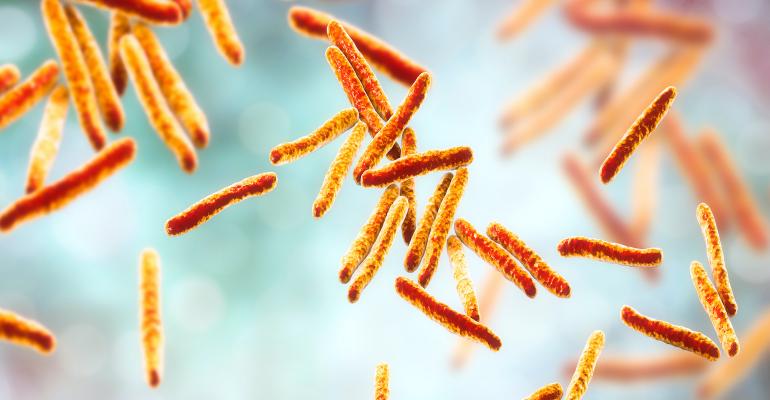Bacille Calmette-Guérin (BCG) is a vaccine for tuberculosis (TB) disease that has been used for many years; yet it is not fully effective and there are various challenges in using the vaccine. However, despite the urgency of TB that has caused losses, there is little innovation in terms of TB vaccines.
“We have made progress in TB vaccine development, we have new tools particularly in developing efficacy against infection BCG revaccination and H4,” said Professor Helen Fletcher, Professor of Immunology, The London School of of Hygiene & Tropical Medicine, University of London, during her session TB: Where are we now? on the second day of Medlab Asia & Asia Health - The Virtual Edition.
However, she explained during her presentation that TB is not seen as an urgent disease to cure which makes innovation to contain it very limited. The BCG vaccine is the only licensed vaccine for TB, developed in 1921. It is not highly effective among adults; it also does not protect those who have a positive tuberculin skin test. Despite saving lives, there is still more room for development.
Prof Fletcher explained that due to urgency seen in handling COVID-19’s effect on the economy and the political scene, there have been 186 vaccines in the clinical trial pipeline for COVID-19; meanwhile, there are only 24 TB vaccines in the clinical trial pipeline.
“We need a great sense of urgency in the development of the TB vaccine,” she said.
There are 9.6 million cases every year. Dr Fletcher said that along COVID-19, TB is also one of the largest causes of death, 1.5 million deaths per annuum. The largest number of cases are seen in Sub Saharan Africa and Southeast Asia.
Much like COVID-19, TB is also a potentially serious infectious disease that affects the lungs leading to respiratory issues. Infections can take weeks or even years. The bacteria that lead to TB are spread through tiny droplets released into the air.
During her session, Prof Fletcher explained a study that came out in 2018 that concludes that if “We revaccinate with BCG we can get protection from the disease” with 45% efficacy. However, the study was replicated in Brazil and found almost zero efficacy, she added. Another study in non-human primates NHP found that the efficacy of BCG improves if inserted by intravenous. She said these studies show that if BCG is used differently, it might bring higher efficacy.
Another vaccine that was tested on NHP is RhCmV/TB which provides sterile protection, mediated by classical T cells and has shown 41% sterile protection. However, it needs to be redesigned in the Human CMV backbone, she explained.
Meanwhile, M72/AS01E TB vaccine candidate, which is a fusion protein derived from Mtb32A and Mtv39A, has been in the pipeline for clinical studies. This vaccine has been tested in HIV negative adults who have been already infected with TB. The vaccine has shown a significant degree of protection provided by this vaccine against the development of active TB disease among adults.However, M72 has not been tested on people who are not TB infected and who have HIV.
“We made progress in the last 5 years in understanding immune correlates of protection and understanding that inflammation is a real issue in TB both as a driver of activation of the disease but also something might be interfering in vaccine efficacy,” explained Prof Fletcher. She added that these understandings are important for vaccine’s developers to consider at the design stage.
She explained that TB health developers can learn from COVID-19 by looking at: the new platform technologies available now, advocating for accelerated regulatory pathways, understanding the risk in manufacturing, and planning how to scale up manufacturing and finally how to globally distribute the vaccine.
Register as an attendee for Medlab Asia & Asia Health, ASEAN's leading healthcare and laboratory event taking place online on 20-22 October 2021.

